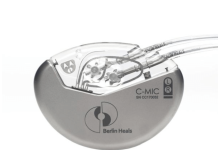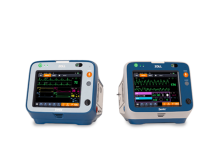US-based medical device company EndoQuest Robotics and Omnivision have joined forces to incorporate image sensor technology into surgical robotics.
Omnivision will integrate its OCHFA CameraCubeChip image sensor into EndoQuest’s flexible robotic system.
The CameraCubeChip visualisation solution integrates image sensors, processors, and lenses. It is built with the company’s PureCel Plus-S pixel technology, providing high full-well capacity and reduced power consumption, delivering crisp, clear, and life-like images.
The robot is still under development and is yet to receive clearance from the US Food and Drug Administration (FDA). However, Endoquest announced last week that the flexible surgical robotic system earned a spot on the FDA’s Safer Technologies Program (STeP).
Last month, EndoQuest secured $42m in a C-1 preferred financing round led by CE Ventures and McNair Interests to advance the robotic system.
Related: Tandem Diabetes Care introduces updated t:slim X2 insulin pump software
In the announcement accompanying the partnership, EndoQuest’s CEO Kurt Azarbarzin said: “We recognise that advanced imaging is essential to enhancing physician capabilities, especially inside the lumen of the gastrointestinal (GI) tract.”
In November 2023, Omnivision launched a new image signal processor for endoscopes linked to handheld tablet consoles or camera control units (CCUs). The OVMed OH0131 image signal processor (ISP) features advanced image pre-processing algorithms for brightness, contrast, saturation, hue, sharpness, white balance, and gamma adjustment with advanced noise reduction.
According to a report on GlobalData’s Medical Intelligence Center, medical robotics revenues are forecast to reach $14.5bn by 2030, with surgical robots driving the market, making up $10.3bn of the 2030 revenues.
GlobalData is the parent company of Medical Device Network.
There have been several recent developments in the surgical robot’s space, with Johnson & Johnson announcing plans to submit its OTTAVA robotic surgical system to the FDA for an investigational device exemption (IDE) application status. The planned submission will take place in the second half of 2024 and will initiate the start of clinical trials of the system.




